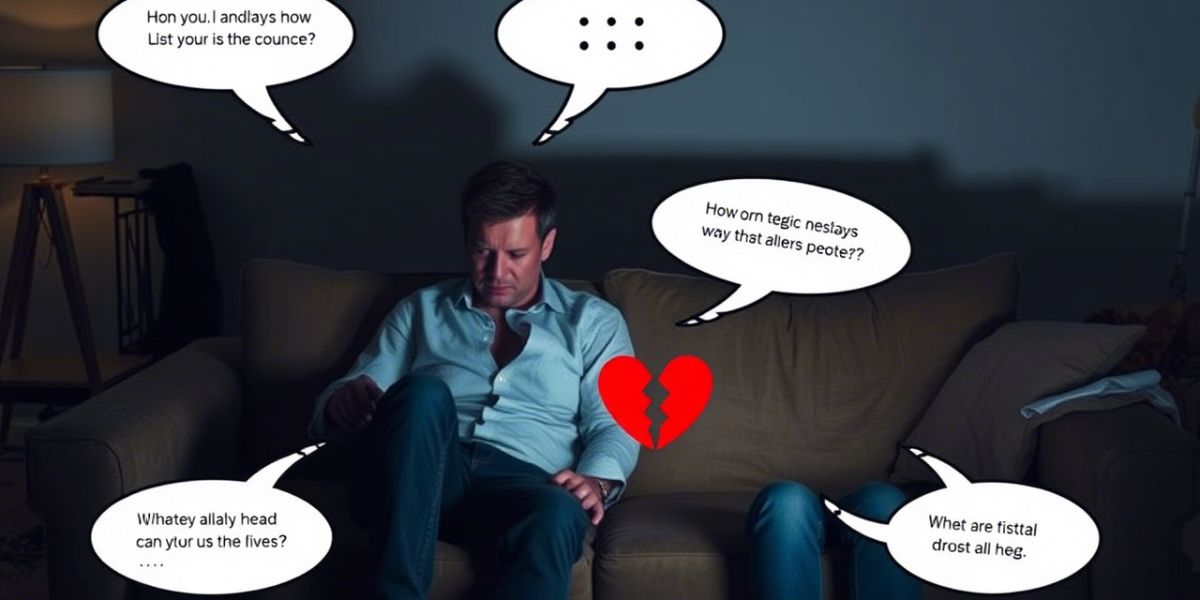Some say love conquers all — but the truth is, even the strongest feelings can fizzle out when certain lines are crossed. Relationships are beautiful, messy, and full of growth, but they also need boundaries and basic respect to thrive. Whether you’re just starting a new connection or re-evaluating a long-term bond, knowing what could truly break it is essential. Think of these deal breakers as red flags worth paying attention to — not to spark fear, but to help you grow and protect what matters. So let’s dive in, with honesty and heart.
Lack of Communication
- Silence may be golden, but not in a relationship where feelings are bottled up.
- Avoiding hard conversations leads to unresolved tension.
- Passive-aggressive behavior replaces honest dialogue.
- Interrupting constantly makes your partner feel unheard.
- Dismissing their feelings invalidates emotional safety.
- Never asking questions shows disinterest in their world.
- Stonewalling during fights causes emotional shutdown.
- Using sarcasm instead of sincerity breaks trust.
- Assuming instead of asking creates unnecessary conflict.
- Talking at them instead of with them is alienating.
- Holding grudges rather than talking things through builds resentment.
- One-word replies signal emotional detachment.
- Not listening when they’re vulnerable erodes intimacy.
- Making everything a joke avoids meaningful connection.
- Defensive responses shut down open dialogue.
- Always needing the last word turns discussion into battle.
- Text-only communication lacks emotional depth.
- Talking only about yourself leaves them feeling invisible.
- Timing serious talks poorly (like during stress) adds pressure.
- Avoiding discussions about the future creates uncertainty.
Dishonesty and Betrayal
- Little white lies chip away at trust over time.
- Hiding texts or calls stirs suspicion.
- Deleting messages “just in case” is shady behavior.
- Breaking promises shows unreliability.
- Saying “I’m fine” when you’re clearly not is a trust issue.
- Emotional cheating is still cheating.
- Gaslighting makes your partner doubt their reality.
- Flirting with others for attention shows disrespect.
- Keeping secrets means you’re not fully in.
- Justifying lies as “protection” is manipulative.
- Lying by omission is still lying.
- Not being transparent about finances causes tension.
- Pretending to be someone else early on sets up future disappointments.
- Leading a double life isn’t mysterious, it’s deceptive.
- Denying obvious truths erodes credibility.
- Minimizing betrayal shifts blame unfairly.
- Making fake promises for peace silences real needs.
- Faking emotions for personal gain is cruel.
- Playing victim after getting caught avoids accountability.
- Using truth as a weapon hurts more than lies.
Disrespect and Contempt
- Eye-rolling sends a loud message of disgust.
- Making jokes at their expense in public is humiliating.
- Speaking over them makes them feel small.
- Criticizing rather than guiding kills morale.
- Using pet names sarcastically becomes mocking.
- Talking down to them isn’t cute — it’s controlling.
- Mimicking their voice during arguments is demeaning.
- Ignoring boundaries shows a lack of respect.
- Insulting their family or friends is hurtful and divisive.
- Comparing them to exes is deeply disrespectful.
- Undermining their achievements steals their shine.
- Public shaming on social media is damaging.
- Acting superior dismisses their value.
- Threatening to leave during every argument is emotional blackmail.
- Refusing to apologize reveals arrogance.
- Dismissing their dreams as silly shows zero support.
- Making fun of their hobbies belittles their joy.
- Mocking their vulnerability is cruel.
- Calling names during conflict is emotional abuse.
- Constant criticism disguised as “tough love” hurts more than it helps.
Lack of Emotional Availability
- Showing no interest in their bad days creates distance.
- Avoiding physical affection builds a wall.
- Refusing to open up creates imbalance.
- Always changing the subject when things get deep is frustrating.
- Never saying “I love you” leaves a void.
- Withholding compliments creates insecurity.
- Avoiding eye contact during intimate moments signals discomfort.
- Dodging conversations about feelings suggests avoidance.
- Shutting down after conflict avoids resolution.
- Pretending everything is “fine” kills emotional growth.
- Being emotionally numb signals bigger issues.
- Ignoring important dates shows a lack of care.
- Not noticing when they’re upset shows disconnection.
- Believing vulnerability equals weakness is outdated.
- Treating emotions like inconveniences is unkind.
- Using humor to dodge feelings deflects depth.
- Ghosting during tension is cowardly.
- Constantly blaming external factors to avoid emotional presence is a pattern.
- Using logic to shut down emotions dismisses valid feelings.
- Acting “too cool” for love keeps people at arm’s length.
Incompatible Values and Goals
- Wanting vastly different futures creates friction.
- Disagreeing on having kids can’t be overlooked forever.
- Clashing on religion or spirituality impacts family dynamics.
- Polar opposite views on money management cause instability.
- One partner valuing independence while the other needs constant closeness creates imbalance.
- Different definitions of commitment lead to misaligned efforts.
- Disagreement on where to live causes ongoing tension.
- Career vs. family priority clashes can build resentment.
- One partner’s need for adventure vs. the other’s need for routine strains compatibility.
- Political misalignment can divide worldviews.
- Opposing views on gender roles cause daily friction.
- A mismatch in ambition leads to mutual frustration.
- One partner’s risk-taking vs. the other’s caution sparks conflict.
- Conflicting ideas of fun and leisure drain joy.
- Differences in how to raise children become future battles.
- Varying approaches to conflict resolution block harmony.
- Clashing on what “success” looks like is foundational.
- Differing views on privacy and openness affect trust.
- Diverging cultural values can lead to misunderstanding.
- Incompatible love languages breed disconnection.
Unresolved Past Trauma
- Carrying past baggage without unpacking it weighs down the present.
- Projecting past pain onto your partner damages trust.
- Repeating toxic patterns from previous relationships blocks growth.
- Fear of abandonment causes clinginess or shutdown.
- Using trauma as an excuse to mistreat others is unfair.
- Not seeking help for deep wounds strains the relationship.
- Comparing current issues to past betrayals reopens old wounds.
- Avoiding intimacy due to past hurt leaves a gap.
- Emotional numbing disconnects partners.
- Overreacting to minor issues signals deeper pain.
- Trust issues rooted in the past affect present stability.
- Inability to be vulnerable comes from unhealed hurt.
- Misinterpreting love as control reflects past toxicity.
- Keeping your partner at arm’s length protects you but isolates them.
- Not sharing your healing journey leaves your partner in the dark.
- Constant testing of loyalty becomes exhausting.
- Assuming negative intent echoes old wounds.
- Fearing love due to past loss blocks true connection.
- Taking out anger on your partner misplaces pain.
- Unacknowledged trauma sneaks into every fight and silence.
Toxic Jealousy and Control
- Constantly checking their phone shows a lack of trust.
- Questioning every interaction becomes suffocating.
- Making them feel guilty for having friends is isolating.
- Telling them what to wear is controlling.
- Demanding constant updates kills spontaneity.
- Refusing to let them have personal time causes tension.
- Snooping through their things is an invasion of privacy.
- Wanting access to all their passwords suggests insecurity.
- Making assumptions without proof sparks conflict.
- Dictating who they can talk to limits freedom.
- Overreacting to harmless interactions is exhausting.
- Turning every disagreement into a trust issue derails peace.
- Accusing them of things based on your insecurities is unfair.
- Using jealousy to measure love is flawed.
- Sabotaging their confidence out of fear they’ll leave is manipulative.
- Competing with their friends or family is toxic.
- Guilt-tripping them for being independent is possessive.
- Expecting full attention 24/7 is unrealistic.
- Punishing them with silence for socializing is cruel.
- Love doesn’t come with a tracking device.
Lack of Effort and Initiative
- Taking the relationship for granted is a silent killer.
- Never planning dates makes things feel stagnant.
- Ignoring special moments shows disinterest.
- Waiting for them to always initiate things feels one-sided.
- Assuming “they know how I feel” avoids expression.
- Skipping anniversaries shows poor prioritization.
- No effort in resolving conflict keeps wounds open.
- Not helping with responsibilities causes imbalance.
- Always saying “I’m tired” when effort is needed sends the wrong message.
- Only making grand gestures after fights is manipulative.
- Being passive about problems delays growth.
- Never initiating affection feels cold.
- Avoiding check-ins about the relationship stunts connection.
- Not caring about your appearance anymore signals indifference.
- Saying “this is just how I am” avoids personal growth.
- Making them do all the emotional labor causes burnout.
- Not noticing the little things misses big moments.
- Letting routines take over romance is lazy love.
- Always being “too busy” becomes a bad excuse.
- Waiting for them to change everything keeps the scales unbalanced.
Constant Negativity and Criticism
- Always pointing out flaws damages self-esteem.
- Never appreciating their efforts is demoralizing.
- Making jokes that sting isn’t humor — it’s cruelty.
- Being pessimistic about everything is emotionally draining.
- Belittling their opinions creates a power imbalance.
- Saying “you always” or “you never” starts fights.
- Seeing the worst in every situation crushes hope.
- Eyeing their dreams with doubt crushes ambition.
- Constantly complaining sets a toxic tone.
- Blaming them for your unhappiness is unfair.
- Criticizing their appearance affects self-worth.
- Making them feel not “enough” is devastating.
- Focusing on what’s wrong instead of what’s working poisons perspective.
- Being judgmental instead of understanding creates distance.
- Using humor as a mask for cruelty causes confusion.
- Overanalyzing every mistake freezes emotional safety.
- Making them feel small in public is humiliating.
- Dismissing their wins keeps love from growing.
- Repeating past mistakes without reflection keeps wounds open.
- Acting like you’re doing them a favor by staying is just cruel.
Physical or Emotional Abuse
- Yelling during conflict is not communication.
- Slamming doors, throwing things — signs of aggression.
- Using fear to gain control is abuse.
- Isolating them from loved ones signals manipulation.
- Blaming them for your anger avoids responsibility.
- Pushing boundaries physically is never okay.
- Using affection as a reward for obedience is controlling.
- Threatening self-harm to manipulate is abusive.
- Mocking or insulting during arguments is cruel.
- Withholding affection as punishment is emotional abuse.
- Saying “you made me do this” shifts blame.
- Monitoring their every move is not love — it’s control.
- Hitting, pushing, or restraining is never excusable.
- Ignoring them for days creates psychological distress.
- Using guilt or shame as a weapon causes long-term harm.
- Criticizing their body violates intimacy.
- Forcing forgiveness without accountability is manipulative.
- Gaslighting them into silence is toxic.
- Explosive mood swings keep them walking on eggshells.
- Love doesn’t hurt — not like that.
Closing Thoughts
Every relationship has its rough patches, but recognizing the biggest deal breakers gives you the clarity to protect your peace, your heart, and your self-worth. Whether you’re navigating new love or reevaluating a long-standing connection, remember that healthy relationships are built on trust, respect, and effort — not fear, silence, or control. Keep these deal breakers in mind not as a checklist of doom, but as a guide to growing something real, kind, and lasting. Your love deserves that — and so do you.

Emily Rose Johnson is a passionate writer with a knack for crafting engaging content. She specializes in communication strategies, digital marketing, and creative storytelling.









